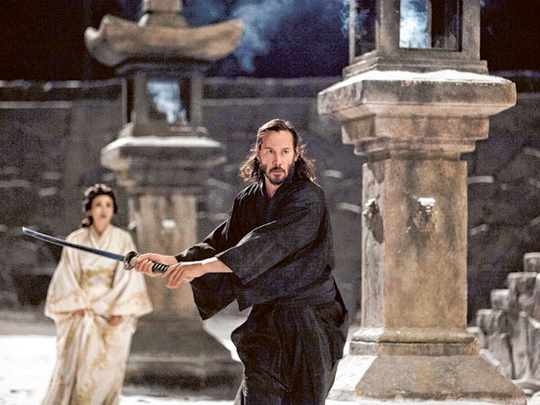
In 47 Ronin, Keanu Reeves portrays the leader of a band of ronin — masterless samurai in 18th-century Japan who must suffer the indignity of having no one to lead them in battle. Turns out that plot line provides an apt metaphor for the period 3-D sci-fi epic’s problem-plagued odyssey to the screen.
47 Ronin has arrived in theatres as one of the most troubled movie productions in recent memory, as well as one of 2013’s most spectacular flops-in-the-making.
According to pre-release awareness surveys, the revenge thriller, which cost at least $175 million (Dh642.8 million) to produce, is on track to earn around $20 million in its opening five days. Such a weak box-office haul would put 47 Ronin in the top tier of big-budget Hollywood failures, ranking alongside John Carter, R.I.P.D. and The Lone Ranger in the “when tentpole films go horribly wrong” category.
Moreover, the film’s distributor, Universal Pictures, has taken a rare pre-emptive write-down on the cost of 47 Ronin — a charge on the studio’s income tax statement to offset substantial losses. Even on the heels of hugely profitable films for Universal this year (including Fast and Furious 6 and Despicable Me 2), it’s a move that signifies the white flag of defeat to industry observers.
“Universal Pictures regularly evaluates its film slate for potential adjustment,” the studio said in a statement to the Los Angeles Times. “In the case of 47 Ronin, we adjusted film costs in previous quarters and as a result of our financial performance will not be negatively impacted by its theatrical performance.”
Earlier this month, Ronin got off to a disappointing start in the country in which the movie is set, grossing just $1.3 million over the film’s opening weekend in Japan. But its difficulties date back to 2011, when shooting began in Budapest, Hungary, and a widely reported difference of vision between Universal and Ronin director Carl Rinsch.












